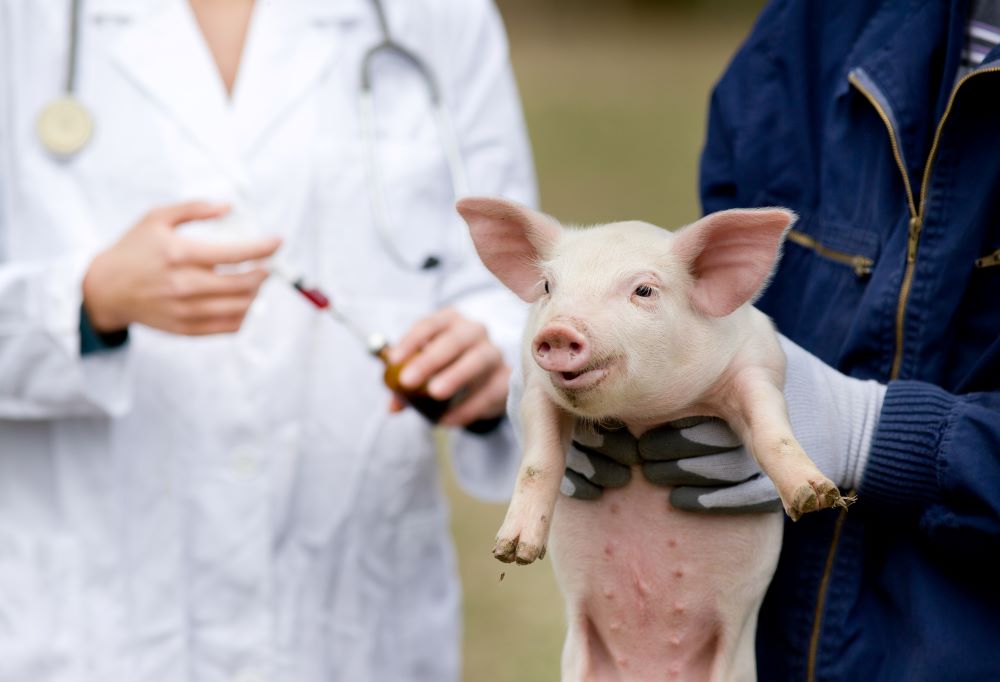
British farmers and vets are warning that the delay to border checks for agri-food imports from the EU are an “accident waiting to happen”.
The government delayed the implementation of remaining post-Brexit controls for the fourth time last month, due to concerns about the readiness of businesses and rising food prices.
The rules – including the requirement for entry summary declarations and various sanitary and phytosanitary checks – will not come into effect until the end of 2023.
‘White van’ shipments
However, the FT reports concerns from the UK Food Standards Agency about the threat of illegal “white van” shipments of pork meat coming to Britain from Romania, where there is currently an outbreak of African swine fever.
James Russell, senior vice-president at the British Veterinary Association (BVA), said vets were “deeply concerned” about the risks posed by delaying the checks.
He added that Britain no longer receives vital information about outbreaks of diseases in EU member states as quickly as it previously did when it was a member of the bloc.
Risky business
Zoe Davies, chief executive of the National Pig Association, warned that the delay could damage the £1.6bn UK pig sector.
“We know that this is an accident waiting to happen, because it’s an accident that has already happened before,” she told the Express.
Delay to checks
As previously covered in the IOE&IT Daily Update, the government will not impose the physical sanitary checks on agri-food (animals, animal products, plants and plant products) imports to Great Britain from the EU that were due to have started on 1 July.
Brexit opportunities minister Jacob Rees-Mogg said doing so would save UK consumers £1billion a year.
Full implementation of import controls have been pushed back to the end of 2023, and the government hopes to save businesses costs and administrative burden by using this period to digitise many of the processes mandated by the rules.
Controls introduced in January 2021 on the highest risk imports of animals, animal products, plants and plant products will continue to apply, alongside the requirement for full import declarations for all imports.
Not a level playing field
The fourth delay has angered UK food exporters who have had to comply with new administrative procedures to move goods to the EU since the beginning of 2021.
Ulster Farmers Union president Victor Chestnutt told Farming UK that the government’s constant delay of the checks was “totally unacceptable and hugely unfair to our local producers”.
“They’re expected to uphold world leading standards, all the while our EU competitors can take full advantage of an extended grace period allowing them to access our extremely valuable home market relatively burden-free,” he said.
SMEs struggle
The Loadstar reports that the UK’s small and medium sized enterprises (SME) have seen their European markets vanish as they struggle to cope with increased bureaucracy and costs of trading, while EU exporters benefit from the UK’s lack of controls.
While the additional costs spread over a lorryload are not enough to affect larger businesses, SMEs moving smaller numbers of pallets have been hit hard, a customs broker said.
UK ports are also said to be exploring legal action after having had to bring in expensive infrastructure changes that are now “white elephants” following the delay to the border checks.



